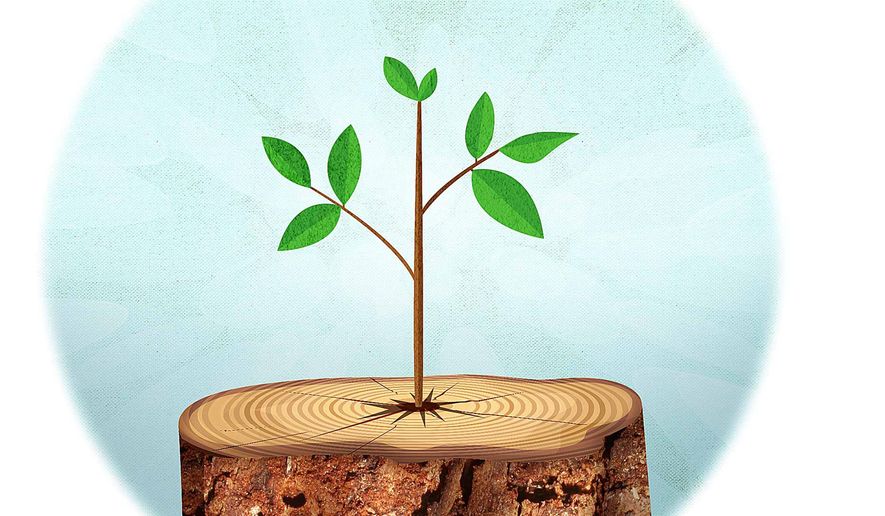OPINION:
A young man from a low-income family sells small amounts of marijuana when real opportunity eludes him. He’s arrested and incarcerated several times. After being convicted and serving his sentence, he leaves prison with a record that will follow him for the rest of his life. He finds it impossible to get a job or even find a place to live on his own. He rarely sees his two little girls and eventually returns to crime not because he wants to, but to make ends meet.
It’s not an unusual story and you’ve probably heard it before. This particular story belongs to a longtime friend of mine here in Maryland. He’s stuck in the vicious cycle caused in part by a broken criminal justice system that destroys lives, families and communities through the overcriminalization of nonviolent behavior.
Stories like this, sadly, are especially common in the African-American community in which I was raised, where black men are much more likely than men of any other race to be incarcerated now or during their lifetime. One in three black men born in 2001 will be imprisoned during their lifetime, compared to just one in 17 white men. The same gap exists between black women and black juveniles and their white counterparts.
These disparities in our criminal justice aren’t caused only by racial prejudices. They often occur because minorities have fewer opportunities to receive a good education or achieve economic mobility and because so many young people in our cities are from broken homes. But another contributing factor is that local and state governments as well as the federal government have created an excessive number of criminally punishable offenses, believing this will keep our communities safe. In fact, our criminal code is so complex and vague that the experts tell us that the average American may commit as many as three felonies a day without even knowing it.
As a result, with more than 2 million men and women in our jails and prisons, this country has a higher incarceration rate than any other country in the world.
While there are many people who deserve to be in prison — some for a long time — the way it is right now, many people convicted of nonviolent crimes are thrown in with violent career criminals and receive sentences that tar them for the rest of their lives in a way that makes a mockery of the very idea that once one has “paid his or her debt to society” they can go on with their lives. Many nonviolent offenders end up behind bars not because they’re violent or evil, but because they’ve made a mistake that they would like to put behind them — once they’ve served their sentence, unfortunately, they discover that won’t happen.
Harsh sentencing laws make things even worse, as judges are often forced to issue prison sentences that are longer and more excessive than they believe fit the crime. Research from the Brennan Center for Justice has shown that longer sentences have little impact on rehabilitating inmates, and higher incarceration rates rarely deter future criminal activity.
That’s why I’m supportive of current efforts in Congress to reform our country’s criminal justice system. The Sentencing Reform Act of 2015 introduced by Sen. Chuck Grassley, Iowa Republican, and House Judiciary Chairman Bob Goodlatte, Virginia Republican, would help millions of nonviolent offenders who have been left behind under the status quo. It not only reduces mandatory minimums for many low-level drug offenses, but gives judges more discretion during sentencing to look at the individual circumstances of the case.
There are also bills in Congress with bipartisan support that would help reduce youth crime by strengthening adolescents’ ties to their community and increasing accountability for their actions, and another to provide better treatment for offenders suffering from mental illness.
More and more Americans are beginning to realize that our criminal justice system isn’t working as it should, and support efforts to fix it. Doing so will limit the far-reaching consequences of the system’s flaws, increase the likelihood that those who have made a mistake will be able to turn their lives around, and lead to a safer society for all. There are many in our jails and prisons who want to “go straight” after they’ve served their time. They deserve an opportunity to find meaningful work and make a positive contribution to society. Neighborhoods and communities will be safer. Our economy and nation as a whole will be bolstered.
This isn’t just a political issue — our broken criminal justice system has a human face. For me, it’s the face of my friend who made a bad decision and has spent the rest of his life paying for it. Some people deserve to spend a lifetime making amends, but there are many who deserve a second chance. Let’s give it to them.
• Derrick Hollie is the founder of Reaching America.




Please read our comment policy before commenting.